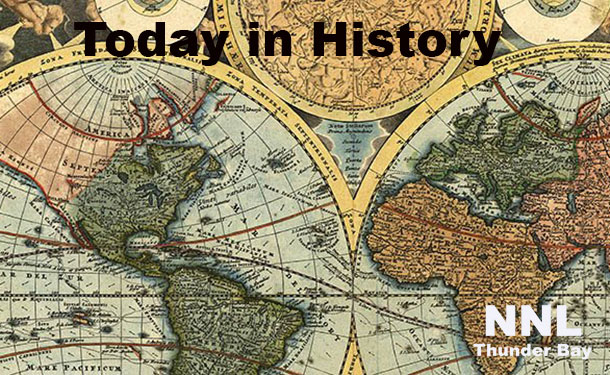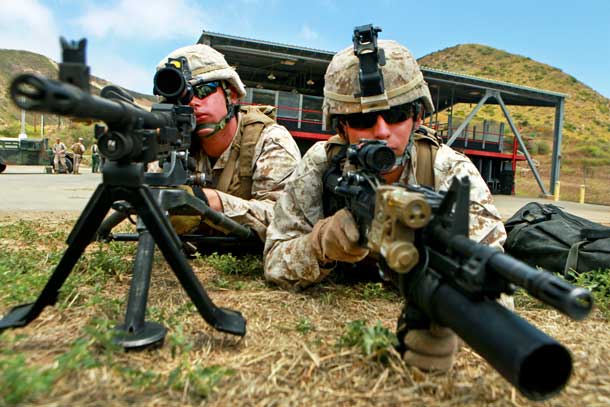 THUNDER BAY – February 5 in history. Time is of the essence – It was on this day in 1924 that the BBC started broadcasting time chimes.
THUNDER BAY – February 5 in history. Time is of the essence – It was on this day in 1924 that the BBC started broadcasting time chimes.
The Royal Greenwich Observatory begins broadcasting the hourly time signals known as the Greenwich Time Signal or the “BBC pips”.
If you tune in to CBC radio at 11AM they do a time check.
Video by associatedpress
Significant Events in History
- 62 – Earthquake in Pompeii, Italy.
- 756 – An Lushan, leader of a revolt against the Tang dynasty, declares himself emperor and establishes the state of Yan.
- 1576 – Henry of Navarre abjures Catholicism at Tours and rejoins the Protestant forces in the French Wars of Religion.
- 1597 – A group of early Japanese Christians are killed by the new government of Japan for being seen as a threat to Japanese society.
- 1631 – Roger Williams emigrates to Boston.
- 1778 – South Carolina becomes the second state to ratify the Articles of Confederation.
- 1782 – Spanish defeat British forces and capture Minorca.
- 1783 – In Calabria a sequence of strong earthquakes begins.
- 1810 – Peninsular War: Siege of Cádiz begins.
- 1818 – Jean-Baptiste Bernadotte ascends to the thrones of Sweden and Norway.
- 1849 – University of Wisconsin–Madison’s first class meets at Madison Female Academy.
- 1852 – The New Hermitage Museum in Saint Petersburg, Russia, one of the largest and oldest museums in the world, opens to the public.
- 1859 – Wallachia and Moldavia are united under Alexandru Ioan Cuza as the United Principalities, an autonomous region within the Ottoman Empire, which ushered the birth of the modernRomanian state.
- 1869 – The largest alluvial gold nugget in history, called the “Welcome Stranger”, is found in Moliagul, Victoria, Australia.
- 1885 – King Leopold II of Belgium establishes the Congo as a personal possession.
- 1900 – The United States and the United Kingdom sign a treaty for the Panama Canal.
- 1909 – Belgian chemist Leo Baekeland announces the creation of Bakelite, the world’s first synthetic plastic.
- 1913 – Greek military aviators, Michael Moutoussis and Aristeidis Moraitinis perform the first naval air mission in history, with a Farman MF.7 hydroplane.
- 1917 – The current constitution of Mexico is adopted, establishing a federal republic with powers separated into independent executive, legislative, and judicial branches.
- 1917 – The Congress of the United States passes the Immigration Act of 1917 over President Woodrow Wilson’s veto. Also known as the Asiatic Barred Zone Act, it forbade immigration from nearly all of south and southeast Asia.
- 1918 – Stephen W. Thompson shoots down a German airplane. It is the first aerial victory by the U.S. military.
- 1918 – SS Tuscania is torpedoed off the coast of Ireland; it is the first ship carrying American troops to Europe to be torpedoed and sunk.
- 1919 – Charlie Chaplin, Mary Pickford, Douglas Fairbanks, and D. W. Griffith launch United Artists.
- 1924 – The Royal Greenwich Observatory begins broadcasting the hourly time signals known as the Greenwich Time Signal or the “BBC pips”.
- 1937 – United States President Franklin D. Roosevelt proposes a plan to enlarge the Supreme Court of the United States.
- 1939 – Generalísimo Francisco Franco becomes the 68th “Caudillo de España“, or Leader of Spain.
- 1941 – World War II: Allied forces begin the Battle of Keren to capture Keren, Eritrea.
- 1945 – World War II: General Douglas MacArthur returns to Manila.
- 1946 – The Chondoist Chongu Party is founded in North Korea.
- 1958 – Gamal Abdel Nasser is nominated to be the first president of the United Arab Republic.
- 1958 – A hydrogen bomb known as the Tybee Bomb is lost by the US Air Force off the coast of Savannah, Georgia, never to be recovered.
- 1962 – French President Charles de Gaulle calls for Algeria to be granted independence.
- 1963 – The European Court of Justice’s ruling in Van Gend en Loos v Nederlandse Administratie der Belastingen establishes the principle of direct effect, one of the most important, if not the most important, decisions in the development of European Union law.
- 1971 – Astronauts land on the moon in the Apollo 14 mission.
- 1972 – Bob Douglas becomes the first African American elected to the Basketball Hall of Fame.
- 1975 – Riots break in Lima, Peru after the police forces go on strike the day before. The uprising (locally known as the Limazo) is bloodily suppressed by the military dictatorship.
- 1976 – The 1976 swine flu outbreak begins at Fort Dix, NJ.
- 1985 – Ugo Vetere, then the mayor of Rome, and Chedli Klibi, then the mayor of Carthage meet in Tunis to sign a treaty of friendship officially ending the Third Punic War which lasted 2,131 years.
- 1988 – Manuel Noriega is indicted on drug smuggling and money laundering charges.
- 1994 – Byron De La Beckwith is convicted of the 1963 murder of civil rights leader Medgar Evers.
- 1994 – Markale massacres, more than 60 people are killed and some 200 wounded as a mortar shell explodes in a downtown marketplace in Sarajevo.
- 1997 – The so-called Big Three banks in Switzerland announce the creation of a $71 million fund to aid Holocaust survivors and their families.
- 2000 – Russian forces massacre at least 60 civilians in the Novye Aldi suburb of Grozny, Chechnya.
- 2004 – Rebels from the Revolutionary Artibonite Resistance Front capture the city of Gonaïves, starting the 2004 Haiti rebellion.
- 2008 – A major tornado outbreak across the Southern United States kills 57.
Source: Wikipedia






